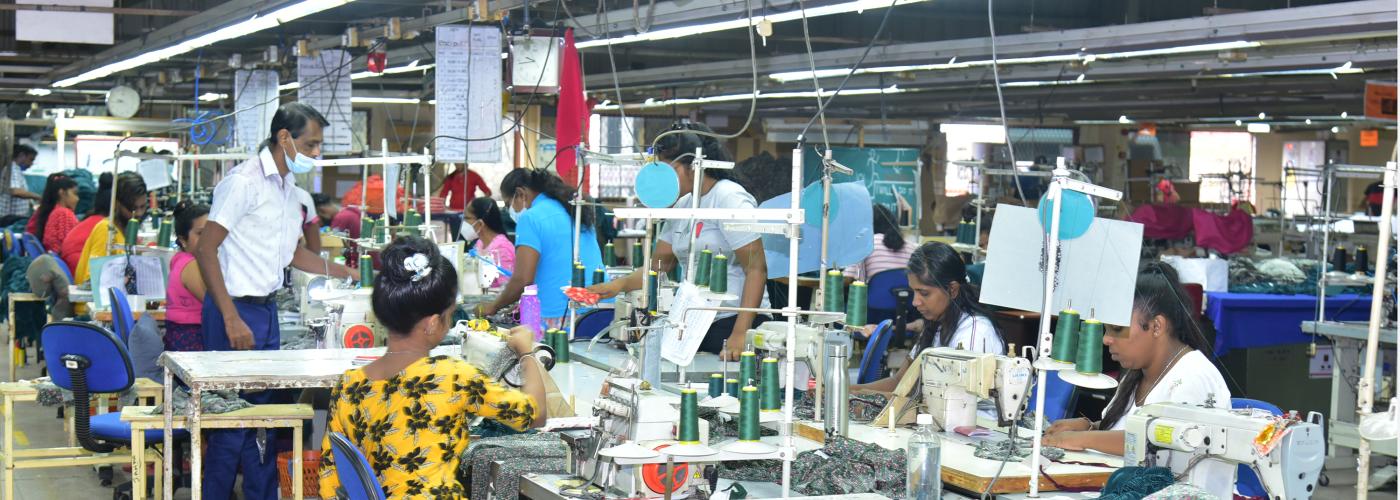The Sri Lanka Apparel Sector Survives and Thrives with USAID support
Image

USAID CATALYZE Private Sector Development Activity Provides COVID-19 Relief Grants to Build Resilience and Adaptability in Sri Lanka's Apparel Sector.
The COVID-19 pandemic severely impacted Sri Lanka's economy and MSMEs, especially in the apparel sector. With the increasing number of cases, lockdowns were implemented in most areas to control the virus's spread. This situation, combined with the political unrest, impacted most of the country's economic activities causing small businesses to undergo severe hardships and even shut down operations as they could not adapt and cope with unexpected pressures.
While the pandemic devastated many small businesses, it also created new opportunities as businesses looked for ways to adapt and survive. Some businesses diversified their products and explored new markets, sparking innovation. When lockdown measures negatively impacted consumer spending and buying patterns in the apparel sector, factories shifted production to much-needed COVID-19 personal protective equipment (PPE). Businesses also started to focus more on investing in their employees to train and upskill them in adapting to new systems and processes.
To support these efforts, in February 2022, USAID CATALYZE's Private Sector Development (PSD) activity provided a COVID-19 grant to Rakshaa (Pvt) Ltd. Rakshaa manufactures and exports garments to multiple countries, including Pakistan, the United Kingdom, India, and the Netherlands. Throughout the pandemic, the company struggled with discontinued orders from regular customers and delayed payments. Travel restrictions also caused the company to lose several staff, as they were unable to travel to work during this period. These challenges severely limited the company's profit margins and working capital, contributing to a loss of roughly 70 percent in business volume. The company began manufacturing PPE materials in huge demand to overcome these losses.
Rakshaa used the relief grant provided by PSD to renew and reservice its generator and boiler. This crucial repair enabled the company to increase production. The grant is also being used to pay staff salaries, which has helped the company to increase its workforce by 40 percent. Notably, the company focused on increasing female participation; now, more than 50 percent of the workforce is female.
Through this grant, PSD helped Rakshaa to withstand the stressful circumstances and bounce back with minimal setbacks. The company is planning business expansions and actively supports smaller businesses through purchase orders. Rakshaa helps the SMEs with technical aspects and quality assurance, which is building their capacity to grow. Rakshaa's increased production, profitability, and employment opportunities, particularly those for women, all contribute to a competitive and thriving apparel industry and local economy.

